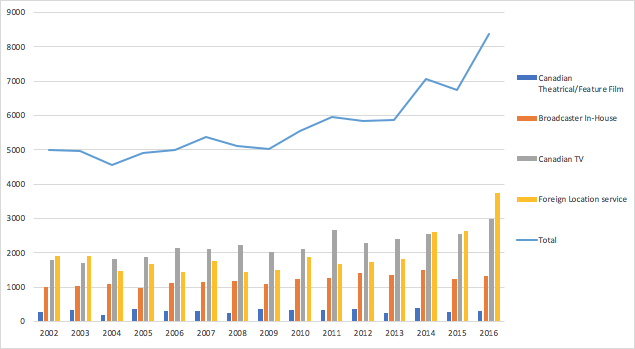 Those of you who have fled the walled garden that constitutes Canada’s regulated Can-con broadcasting system for the freedom of the Internet, beware: the Canadian Radio-television and Telecommunications Commission (CRTC) is ready to round you up.
Those of you who have fled the walled garden that constitutes Canada’s regulated Can-con broadcasting system for the freedom of the Internet, beware: the Canadian Radio-television and Telecommunications Commission (CRTC) is ready to round you up.
After years of news, information, education and entertainment being available unregulated from whatever source you want on a platform where creativity, investment and innovation blossomed, the CRTC has recommended the government pass legislation to allow it to tax and regulate the Internet.
This is the primary takeaway from the report prepared at the request of Heritage Minister Melanie Joly entitled Harnessing Change: The Future of Programming Distribution in Canada. The CRTC concluded that the best way to save its 1980s-era system is not to adapt it to the 21st century but to expand it beyond the realms of over-the-air, cable and satellite broadcasting into all commercial audio-visual content on the Internet, regardless of where in the world it originates.
Because more people are viewing programming online, the CRTC insists, every Internet service provider in Canada should contribute on a per-subscriber basis to provide for the care and feeding of the nation’s film and television content creators. And in case you were unclear, that means your bill goes up. The only question is: by how much?
The rationale is that money for Canadian content (Can-con) creators has traditionally been drawn from public funds supported by levies on cable subscriptions, which are in modest decline.
One might have thought – as Michael Geist pointed out – that the growth over the past five years in foreign investment in Canadian production from $2.2 billion annually to $4.7 billion was a good thing. And one might have thought that after half a century of modest success through public funding, the creative industry’s objectives might be better served by the emergence of a merit-based system.
But nope, not the creators, many of whom live in fear of having to – imagine this – innovate in order to ply their craft. Not the big cable companies, who are more than happy to shackle their online competitors and you with higher costs. And now, not the CRTC.
The good news is that Joly did nothing about it other than to strike a panel to review this and other input over the next 18 months. At that point, the government is expected to make decisions regarding modernizing the broadcasting and telecommunications regimes.
The bad news is that, apparently due to the incessant demands of a largely Montreal-based lobby, Joly may be losing the battle she was so nobly fighting to push the creative sector to embrace and exploit the global opportunities presented by the Internet.
Somehow, this lobby has been able to bamboozle media and others into the idea that Netflix and others represent some sort of existential threat and that the (modest) decline in cable-subscription-based contributions to the Canada Media Fund constitutes some sort of crisis within their industry.
Sure, change may pose some kind of threat to that particular fund, but basically since online video became an actual thing, Canada’s film and TV production has been booming. A chart posted on Twitter by professor Dwayne Winseck of Carleton University illustrates how, with the CRTC keeping its mitts off the Internet, total spending on Canadian TV and film production rose from $5 billion to $8.4 billion – a stunning 68 per cent growth rate between 2002 and 2016.
The only possible way it makes sense for the creative lobby wanting to harness this boom by taxing and regulating the Internet is that it has grown so culturally dependent on the system of building and accessing public funds that it’s incapable of participating in the prosperity that beckons from beyond the official system.
If that’s the case, policy-makers would be wise to realize that their real challenge is not intervening to regulate an imaginary industrial crisis; it’s the weaning of an industry that has grown so dependent upon government funding that it’s willing to kill the geese laying golden eggs.

Total spending on Canadian TV and film production rose from $5 billion to $8.4 billion – a 68 per cent growth rate between 2002 and 2016. Dwayne Winseck of Carleton University
Peter Menzies is a former newspaper publisher and vice-chair of the CRTC.
The views, opinions and positions expressed by columnists and contributors are the author’s alone. They do not inherently or expressly reflect the views, opinions and/or positions of our publication.

